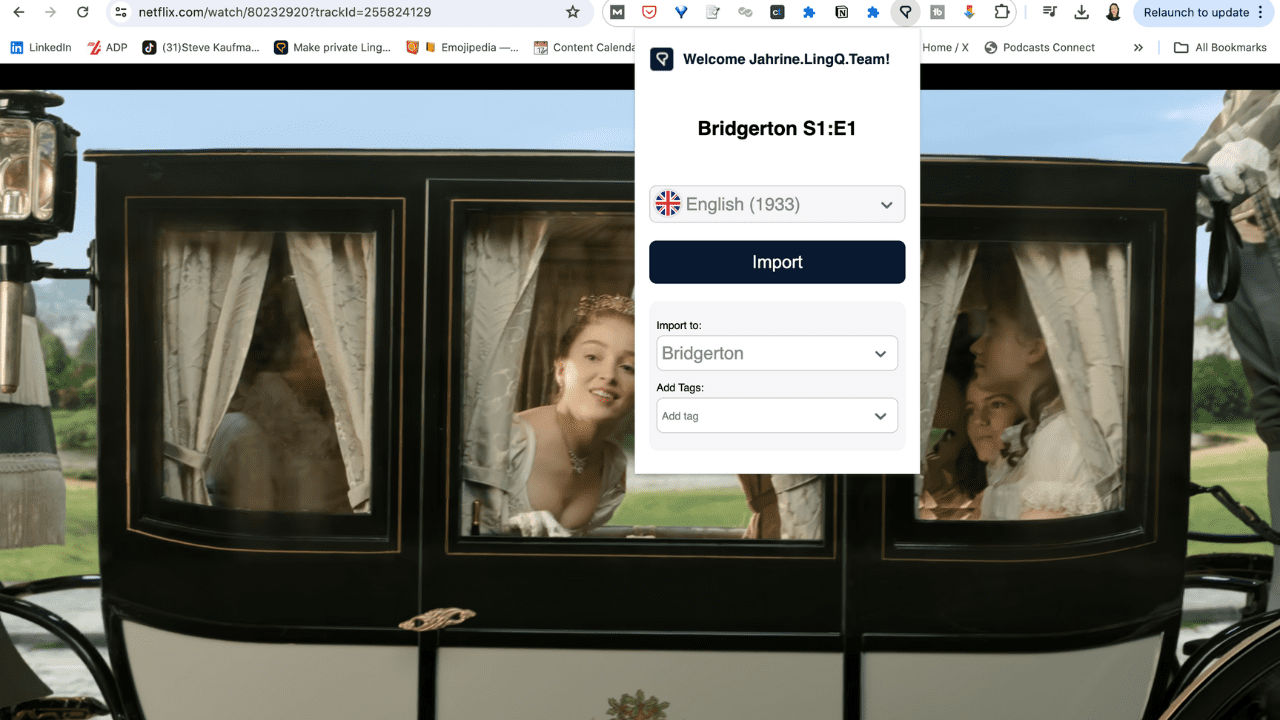Learn English with Bridgerton
Everyone and their grandma is watching Bridgerton, and it’s easy to see the appeal. Set in Regency period London the show follows the extravagant and sexy lives of the high society. The Bridgerton family are at the heart of the plot, with the eight Bridgerton siblings navigating London’s competitive marriage market in pursuit of the perfect match.
The show is based on Julia Quinn’s best-selling The Bridgerton Series and was adapted for Netflix by producer Shonda Rhimes who also brought us the show How to Get Away with Murder and the movie Inventing Anna.
The Regency era spanned the years 1811 – 1820 and Bridgerton takes place between the years of 1813 and 1827, so there is a lot of outdated vocabulary in use. In this post we give the definitions of some of our favourite words and phrases.
10 Regency Words and Phrases in Bridgerton
High in the instep
We start with a great one. The instep is the top part of the foot between your ankle and your toes. Calling someone “high in the instep” is another way of saying they are arrogant or haughty. In short, a snob.
Rake
We’ve all known someone like this. A rake is a man with no morals. Someone who has many vices, especially womanizing, gambling and drinking. We know to steer clear, though they can be devilishly charming!

The marital act
How do I say this… it means rolling in the hay, the shaking of the sheets, getting lucky, knocking boots (sex!).
Leading strings
You know those leashes for toddlers? You can get them attached to backpacks or just attach them to the dog, I mean toddler, directly. Well, that isn’t a new trend. Parents started using child leashes in the Regency Period and they were known as leading strings.
Diamond of the first water
What a pretty way to say something or someone is of the highest quality. The degree of brilliance in a diamond is called its “water”, and so to be a “diamond of the first water” is high praise indeed.
How To Learn English with Bridgerton on LingQ
1. Watch the Episode Once (optional)
Before you choose the episode you would like to study with on LingQ, it helps some learners to watch the episode all the way through (with or without English subtitles). This step will help you get the gist of the plot and introduce you to the characters. Watching all the way through before you start studying is especially helpful if you are a lower intermediate learner.
2. Create Your Lesson with the LingQ Browser Extension
You can download the LingQ browser extension for Chrome, Safari, Edge and Firefox. Once you have it, add it to your toolbar and you can click on it to make a lesson out of any page you come across with English content, not just Netflix shows. Make sure you have the English closed captions selected before you hit “import”.

3. LingQ New Words and Phrases
Next, work your way through the lesson, making LingQs with words and phrases you don’t know and earning coins as you go. LingQ on the web and on the go on (iOS and Android).
Snuff
This finely ground tobacco was inhaled through the nostrils in the Regency Period and was seen as a mark of refinement.
Facer
You may be able to figure this one out in context: “If you come any closer, I’ll give you a facer!” No? It’s a rather graceful way of saying you’re going to punch someone in the face!
Modiste
A modiste was a maker of fashionable dresses and hats in the Regency Period. As Paris was (and still is arguably) the centre of the fashion world at the time, modistes were expected to be up on what was popular in the French capital.
Coming out
Today “coming out” refers to a person telling others how they identify in terms of sexuality or gender. In the Regency Period the term had another meaning. Coming out was a lady’s formal introduction into society; it was her saying to the world “I am ready to find a husband.”

Leg shackled
Well this term isn’t exactly a rave review of the union of love! If you have your leg shackled you have been tied down AKA married.
